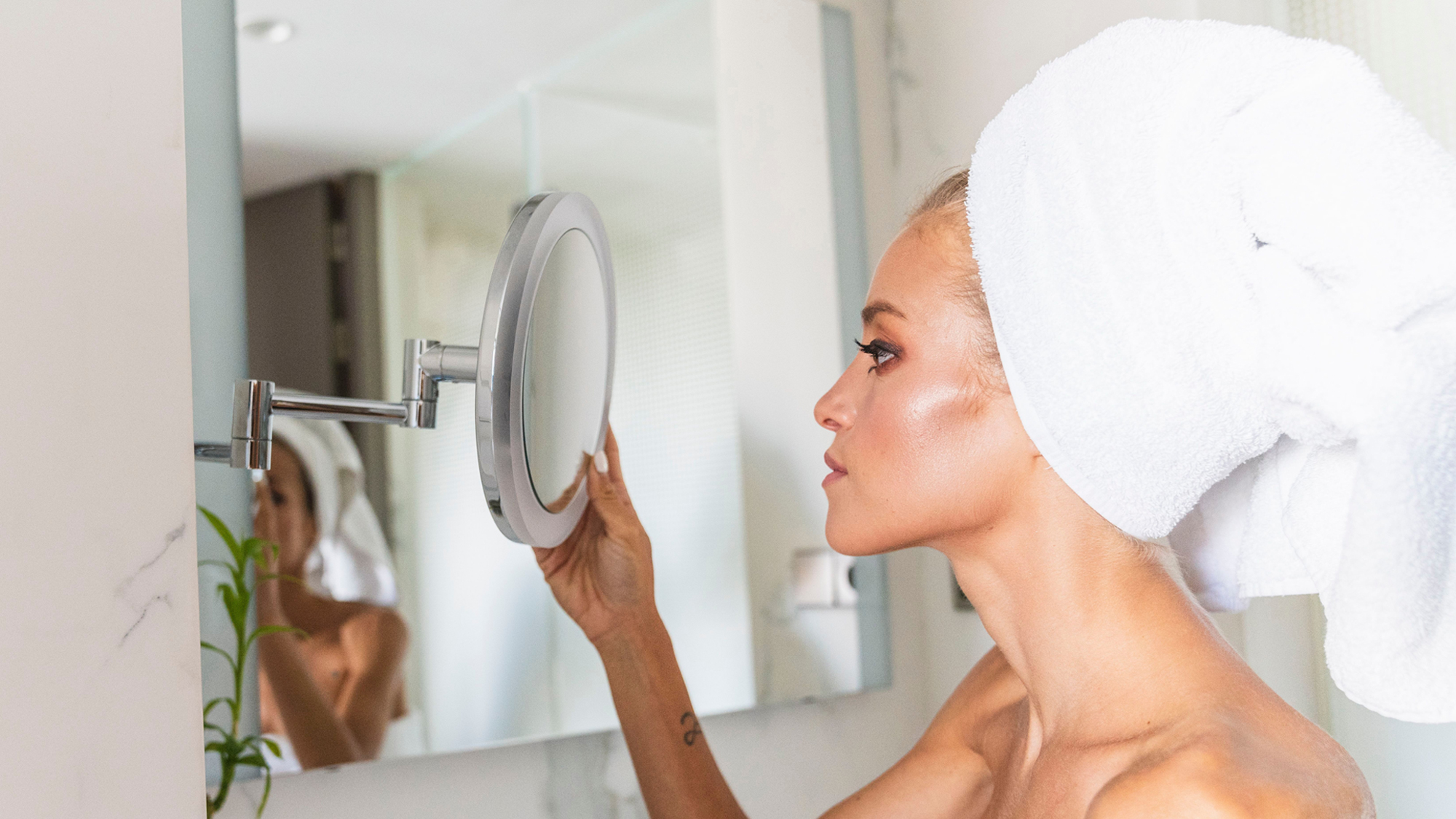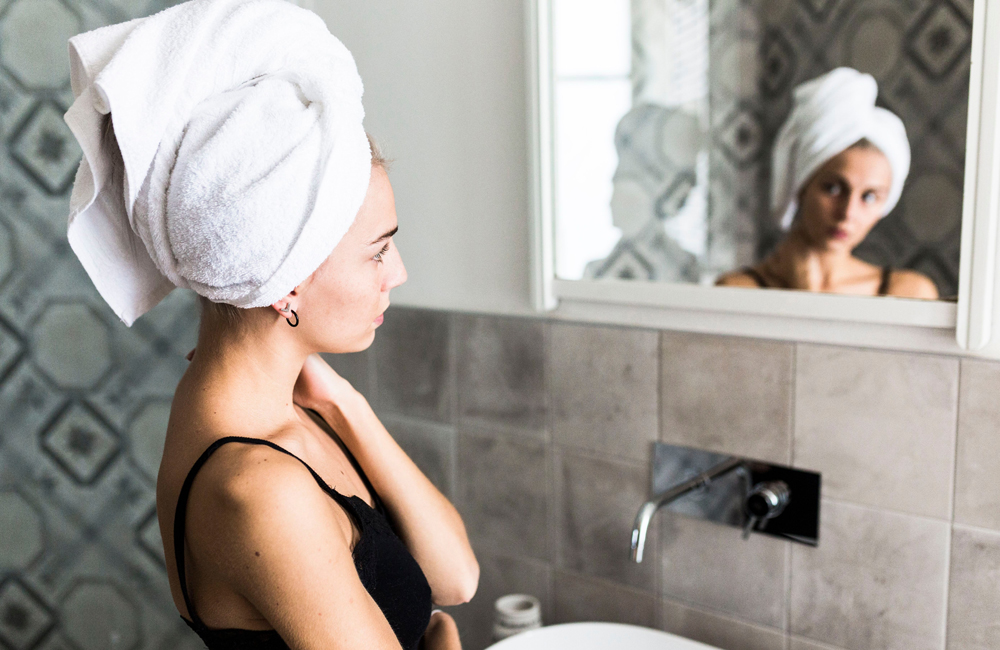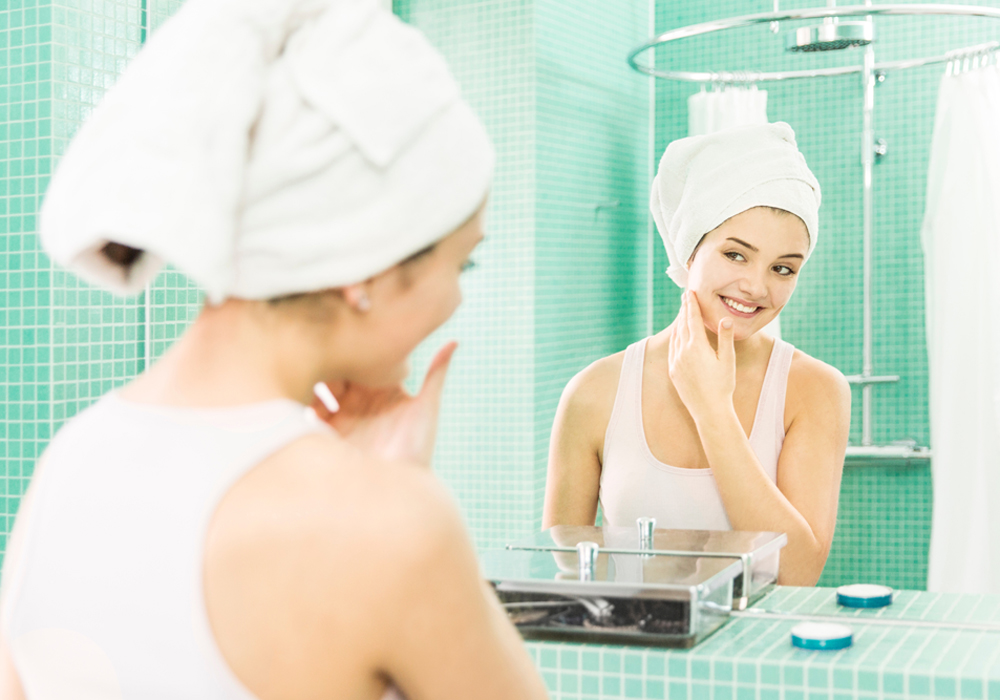How to get rid of blackheads: The complete guide
We asked a number of skin experts to get the lowdown on these pesky pore-pluggers

We asked a number of skin experts to get the lowdown on these pesky pore-pluggers
I'd put money on the most-asked skincare question ever being how to get rid of blackheads.
Because, unless you were blessed with naturally flawless skin, chances are you have quite a few of them and although they're completely normal, most of us will admit that we'd like to get rid of them.
But what exactly are blackheads, why do we get them and is it possible to banish them for good? Below we grill some of the country's top skin experts to find out.
Why do we get blackheads?
'Blackheads are small plugs that form in the exit to the hair follicle (the pore),' says Dr Mervyn Patterson, cosmetic dermatologist at Woodford Medical. 'Normally, cells lining the entrance to the follicle gradually move upwards and outwards onto the skin surface as a constant natural procession.
'With blackheads, this movement is slowed causing a build-up of cells in the neck of the hair follicle. It is these cells combined with sebum that cause the plug in the follicle.'
So how come some of us get far more blackheads than others? 'It all boils down to genetics, skin type and how much sebum you produce,' Nicolas Travis, founder of Allies of Skin tells us. So if you have oily skin, you're more likely to have blackheads.
Marie Claire Newsletter
Celebrity news, beauty, fashion advice, and fascinating features, delivered straight to your inbox!
Whiteheads vs blackheads - the difference
'Both whiteheads and blackheads occur the same way; when your pores are clogged with dead skin cells and sebum,' explains Nicolas. 'The difference is that the pores with whiteheads remain closed, while the pores of blackheads are stretched open, exposed to air and oxidize, culminating in the noticeable dark greyish hue.'
Does this difference mean that they need to be treated differently? 'No, they can be treated the same way,' Nicolas confirms.
How to get rid of blackheads on your face

Regular cleansing and exfoliation are key to minimising the number of blackheads, but be sure not to overdo it. Dr Patterson warns: 'Skin is not like a frying pan dotted with debris that can just be scrubbed clean.'
'The most important rule is not to over-exfoliate as this can strip the skin barrier,' agrees consultant dermatologist Justine Hextall. 'Pale, flushed and drier skin is often more sensitive and should only be exfoliated once a week if necessary; very oily skin, on the other hand, is often more robust and can be exfoliated a couple of times a week.'
So when should it be done? 'Night time is prime time for exfoliation as it will prep the skin ready for any night creams to penetrate and treat,' she adds.
'After exfoliating, I recommend using a gentle wash or cleanser to remove any traces of exfoliation before applying leave-on products to the skin.'
'Salicylic acid, retinol and AHAs – mandelic and glycolic acid are particularly effective – are great for loosening the gunk stuck in your pores,' Nicolas adds. 'In the case of salicylic acid, this has the ability to penetrate deeper into your pores to clear out whatever is stuck.'
How to get rid of blackheads permanently – is it possible?

'Everyone produces sebum so blackheads can't be avoided, but try using silicone-free products and make-up if you find your pores are constantly clogged,' advises Nicolas.
It's possible to try to extract blackheads yourself using a hot flannel, but be very gentle in applying pressure and do not use your fingernails, as this can cause skin trauma.
Blackhead treatments
If your self-treatment programme isn’t working for you, you can try a specialist facial to tackle the problem. Dr Anjali Mahto, consultant dermatologist ND British Skin Foundation Spokesperson, recommends 'regular facials with steam extraction or light chemical peels, such as mandelic acid.'
Dr Patterson recommends trying microdermabrasion and a salicylic peel combination. 'The microdermabrasion is controlled exfoliation combined with suction which helps to disrupt and extract the blackheads and the application of the salicylic acid helps to further loosen the blockage. The salicylic peel has additional anti-bacterial, oil control and anti-inflammatory effects.
'A skilled therapist adept at blackhead extraction is helpful, but becoming a very rare commodity these days. I have to stress that combining these treatments with a long-term thought-out skincare regime is vital to preventing and treating blackheads.'
The leading destination for fashion, beauty, shopping and finger-on-the-pulse views on the latest issues. Marie Claire's travel content helps you delight in discovering new destinations around the globe, offering a unique – and sometimes unchartered – travel experience. From new hotel openings to the destinations tipped to take over our travel calendars, this iconic name has it covered.
-
 Prince Harry's "proud" words about wife Meghan Markle are going viral
Prince Harry's "proud" words about wife Meghan Markle are going viralBy Jenny Proudfoot
-
 Sources have opened up about Timothée Chalamet and Kylie Jenner's "intense" start to the year
Sources have opened up about Timothée Chalamet and Kylie Jenner's "intense" start to the yearBy Jenny Proudfoot
-
 Two Hollywood actresses were offered the role of Carrie Bradshaw before Sarah Jessica Parker
Two Hollywood actresses were offered the role of Carrie Bradshaw before Sarah Jessica ParkerBy Jenny Proudfoot